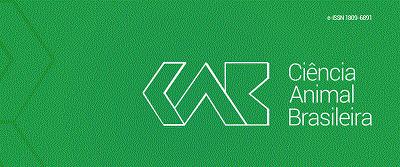Abstract
Several non-thyroid factors such as age, breed, concomitant diseases and use of certain drugs might influence the diagnosis of hypothyroidism in dogs. Changes in the concentrations of thyroid hormones due to non-thyroid illnesses are named euthyroid sick syndrome. The aim of this study was to evaluate the influence of visceral leishmaniasis on thyroid function in dogs without clinical signs of hypothyroidism, with or without azotemia. Positive animals for leishmaniasis were divided into six groups (absence or presence of hypoalbuminemia, normal or increased creatinine, normal or increased urea). The effect on these groups was evaluated on the thyroid-stimulating hormone (TSH), total thyroxine (TT4) and free thyroxine (FT4) concentrations. Dogs that were positive for leishmaniasis, by ELISA test, presented thyroid-stimulating hormone serum concentrations greater than seronegative animals, while total thyroxine and free thyroxine in dogs with leishmanisis were lower (P≤0.01) when compared to healthy dogs. However, the results were within the values for euthyroid animals. In seropositive dogs for leishmaniasis, TT4 showed statistically significant difference (P≤0.04) in the group with hypoalbuminemia compared to the group with normoalbuminemia, respectively, 1,01ug/dL and 1.4 g/dL. Based on this study, we could conclude that positive dogs for visceral leishmaniasis have not presented euthyroid sick syndrome, although when compared to healthy dogs, FT4 and TT4 were reduced and TSH increased.
Keywords:
euthyroid; hypothyroidism; leishmania; sick syndrome; thyroxine
